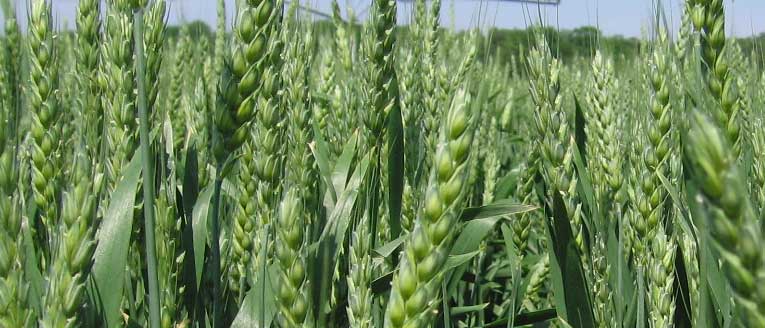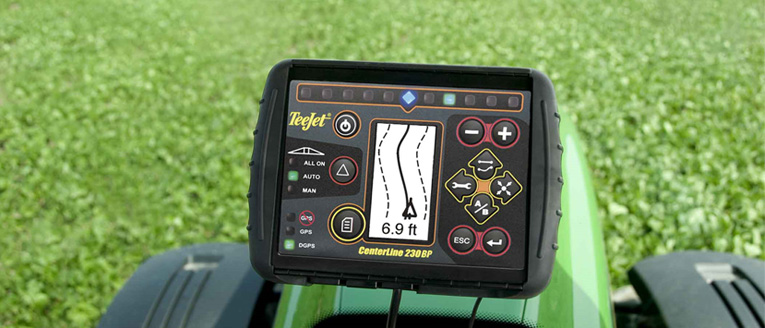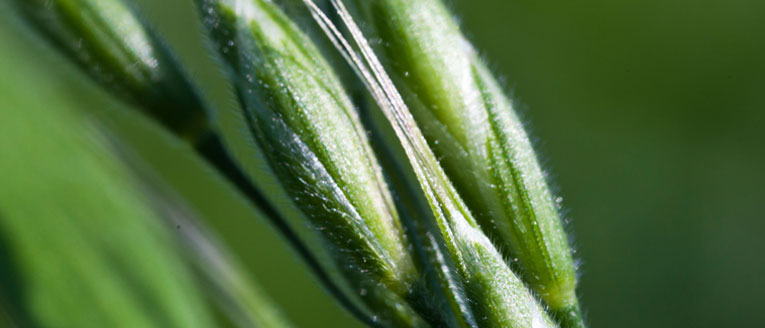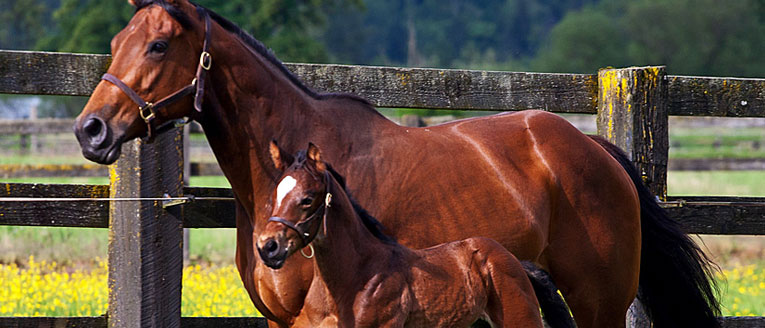Red Cadeaux trained by Ed Dunlop came 2nd in a thrilling Melbourne Cup at Flemington. He was also 2nd beaten a nose in 2011.This admirable gelding has now won nearly £4 million in prize money and is a credit to the whole Ed Dunlop team.
About EuroBale Ltd
 EuroBale Ltd has been established since 1994 and is the largest big bale haylage producer in the country.
EuroBale Ltd has no other business activity other than growing, manufacturing and distribution of its haylage products.
EuroBale Ltd has been established since 1994 and is the largest big bale haylage producer in the country.
EuroBale Ltd has no other business activity other than growing, manufacturing and distribution of its haylage products.
All grass is grown from seedling to harvest by us, not bought from other suppliers.
Eurobale makes up to 10,000 tons each year.
EuroBale is used by a huge cross section of the equine industry including some of the largest thoroughbred studs in Newmarket, many leading flat and national hunt trainers, as well as large Government organisations e.g. London Metropolitan Police and the Animal Defence Centre.
Many other private business and competition riders are also customers. These include event riders, Andrew Nicholson and Jeanette Brakewell as well as private livery yards and riding schools.
We do not seek to be the cheapest but we aim to provide the highest standards in terms of quality of product, delivery service and continuity of supply.
Why choose EuroBale ?
 Produced specifically for horses, EuroBale forage is the first choice for the UK's leading breeders, trainers and competition riders who take their sport seriously.
As a semi-wilted, mildly fermented forage, EuroBale has well documented respiratory benefits: the natural fermentation process ensures that the forage has a low negligible spore level.
A low spore count means fewer respiratory allergies, and more rapid recovery from respiratory infections.
Produced specifically for horses, EuroBale forage is the first choice for the UK's leading breeders, trainers and competition riders who take their sport seriously.
As a semi-wilted, mildly fermented forage, EuroBale has well documented respiratory benefits: the natural fermentation process ensures that the forage has a low negligible spore level.
A low spore count means fewer respiratory allergies, and more rapid recovery from respiratory infections.
- Producing up to 10,000 tonnes annually
- Variety of different products : GOLD, SILVER, TIMOTHY and COUNTRY MIX
- A selection of bale sizes including the revolutionary new Multipack
- Supplied all year round. We do not run out and let down a professional yard
- One 8 wheeler with a Mani-Transit ride on fork lift
- Analytical specification provided with all products on request read more
- EuroBale was established in 1994 and the farm has no other activity
- Full trace ability on every bale
- Annual wastage/returns are less than 1%
- Grown and farmed in-house with the benefits of trace ability and quality
Royal warrant from Her Majesty the Queen
 We are proud to hold a Royal warrant for Her Majesty the Queen.
The warrant was granted in 2010 due to EuroBale’s supply of haylage to the Royal Stud at Sandringham for the past number of years and also due to our ability to prove a commitment to reducing our environmental impact.
We also supply The Royal Mews in London.
We are proud to hold a Royal warrant for Her Majesty the Queen.
The warrant was granted in 2010 due to EuroBale’s supply of haylage to the Royal Stud at Sandringham for the past number of years and also due to our ability to prove a commitment to reducing our environmental impact.
We also supply The Royal Mews in London.
We have over the course of the last twelve months sent back for reprocessing over 50 tons of waste plastic, which is turned into low spec plastic goods e.g. garden furniture, plastic fencing etc.
Precision Farming
 EuroBale is now committed to precision farming as part of our ongoing efforts to improve our product and reduce our reliance on fuels and fertilizers.
EuroBale is now committed to precision farming as part of our ongoing efforts to improve our product and reduce our reliance on fuels and fertilizers.
A brief summary of what is involved
- Soil analysis for major nutrients is taken every 100m over the whole farm.
- A digital map for each field is then produced with the nutrient variations featured.
- Tractor is fitted with GPS receiver accurate to within12cm.
- A fertilizer applicator utilized with a continuous weighing system.
As the tractor moves along a field the GPS system reports to the onboard tractor computer which is reading the digital map produced by the soil sampling and continuously varies in turn the amount of nutrient applied to a given area. This therefore helps to reduce variance in the subsequent crop and makes for a more homogenous finished product to supply to EuroBales’s customers i.e. our ability to ensure the whole field is of the most even nutrient value achievable.
EuroBale Nutritional Benefits
 Devising a feed program to help realise the horse's genetic potential is a time-honoured art. Comparatively recently, science has helped us to explain and expand upon the traditional principles of feeding and to understand the principles of good nutrition.
It has long been recognised that good quality forage should form the basis of all rations, with additional feeds provided as required. Race horses and competition horses require higher levels of certain nutrients in order to work hard. Additional energy is usually provided by feeding cereals - to provide high-energy starch and natural sugars. Also the stresses of racing and competition mean that elevated levels of certain minerals and vitamins may be required.
Devising a feed program to help realise the horse's genetic potential is a time-honoured art. Comparatively recently, science has helped us to explain and expand upon the traditional principles of feeding and to understand the principles of good nutrition.
It has long been recognised that good quality forage should form the basis of all rations, with additional feeds provided as required. Race horses and competition horses require higher levels of certain nutrients in order to work hard. Additional energy is usually provided by feeding cereals - to provide high-energy starch and natural sugars. Also the stresses of racing and competition mean that elevated levels of certain minerals and vitamins may be required.
Good quality forage like EuroBale should make a significant contribution to many areas of the ration but, in particular, EuroBale can assist with providing digestible fibre for energy and retains more vitamins than conventional forage.
Digestible fibre for energy
The Horse's gut contains billions of micro organisms which can break down digestible fibre to provide energy for the horse. Many mature seed hay samples have only low levels of digestible fibre - the fibre has matured and is 'woody' or lignified and cannot be broken down by the micro organisms and so provides few available nutrients - only roughage to help gut motility.
Eurobale is a specially packaged, mildly fermented grass forage and the fermentation has been shown to result in higher digestibility. The increased digestibility results in HIGHER ENERGY LEVELS from Eurobale. In many cases, the energy from EuroBale is as much as 20% higher than the energy derived from similar dry matter intake of a comparable hay sample.
Vitamins for Health and Performance
After a period of storage, the vitamin levels in hay deteriorate as the grass is exposed to the air. The unique packaging system of Eurobale means that much higher levels of these important micro nutrients are maintained in the haylage.
In particular, the B COMPLEX VITAMINS, which are involved in feed utilisation, blood building, hoof condition and many other areas of metabolism, are retained in EuroBale, whereas after several months of storage, most hay samples have negligible levels of these vitamins.
Eurobale provides highly digestible fibre, high biological quality protein and retains significant levels of the vitamins and minerals found in fresh grass.
Respiratory Benefits of EuroBale Haylage
Respiratory disease has been well documented as one of the major causes of poor performance in equine athletes. Viral and bacterial infections and poor hygiene can all contribute to respiratory disease. Research has shown that a significant number of hay samples contain fungal spores, which are released into the air the horse breathes, causing allergic reactions in the horse' s lungs. (Indeed it has been calculated that 1kg of hay can contain as many spores as there are people on the earth!)
Most hay samples are contaminated with fungal spores - the degree of contamination is largely dependent upon the moisture content at baling. In general, the higher the moisture level the greater the degree of contamination with fungal spores.
Many of these spores are very small (usually 3 - 7 um) and can penetrate deep into the lungs causing allergic reactions resulting in increased mucus production, inflammation and spasms of the airways(bronchiospasms) and other problems. these allergic reactions reduce the horse's ability to breathe efficiently and to transport the vital oxygen to his muscles to allow him to work.
A 500kg horse at rest needs to breathe 90 litres of air per minute. As the horse begins to work and muscular activity increases, the demand for air increases dramatically, such that, at a steady canter the volume of air required increases to 380 litres per minute. (A standard bucket of water contains 15 litres, so the horse needs to breathe the equivalent of '25 buckets of air' per minute in order to meet the oxygen demands of a steady canter!)
A Galloping horse needs to consume oxygen at a rate 20 - 30 times faster that at rest and it must also synchronise its breathing with its stride - as the front legs hit the ground, air is driven from the lungs. So in the horse whose lungs are obstructed by extra mucus and a narrowing of the airways caused by breathing in fungal spores, exhalation (breathing out) cannot keep pace with inhalation (breathing in) and the horse may 'hold its breath' - causing it to slow down dramatically - sometimes called 'blowing up'.
Even if the horse does not 'blow up' his speed will be affected, since he will not be able to increase the stride frequency (speed) as his lungs cannot work fast enough.
EuroBale is a mildly fermented grass forage where the fermentation process naturally inhibits fungal growth, resulting in a virtually negligible spore count.
Using EuroBale as part of a dust control management regime cansignificantly reduce the degree of respiratory challenge.
EuroBale Haylage for Optimum Growth & Development
 Developing a feed program for the Stud to help ensure healthy, fit brood mares and well grown but not overtopped young stock with good bone involves combining good pasture, excellent preserved grass for the winter months and a balanced concentrate feed to complement forage.
EuroBale is used by an increasing number of top studs as their preferred source of preserved grass for several key reasons:
Developing a feed program for the Stud to help ensure healthy, fit brood mares and well grown but not overtopped young stock with good bone involves combining good pasture, excellent preserved grass for the winter months and a balanced concentrate feed to complement forage.
EuroBale is used by an increasing number of top studs as their preferred source of preserved grass for several key reasons:
- Haylage is a high dry matter, mildly fermented forage with consistent, confirmed nutrient analysis, determined before purchase to ensure protein, energy, fibre and minerals are at levels to complement to rest of the feeding regime
- Haylage has high levels of retained vitamins(unlike hay where vitamin levels deteriorate during storage), which are of great benefit to early foaling mares when the weather may prevent access to fresh pasture.
- EuroBale's controlled fermentation results in a natural inhibition of the moulds and spores widely found in hay. These very low spore counts are vital in managing mares with COPD and help reduce the likelihood of young animals developing allergic respiratory syndrom.
- Haylage is digestible and palatable, making it suitable for foals, weanlings and yearlings, as well as brood mares.
- Haylage is an excellent source of digestible fibre to provide condition for yearlings during sales preparation, when feeding high levels of cereals.
Advice and backup is available from experienced staff and nutritionists to help with specific feeding queries.
Typical Nutrient Analysis of EuroBale for Studs. Dry Matter Basis
| Dry Matter | 64-69 % |
| Crude Protein | 7 - 12 % |
| MAD Fibre | 34-40 % |
| NDF(Cell wall contents) | 55-65 % |
| Estimated Digestible Energy | 7.5-10 MJ/kg |
| Calcium | 3.5-7 g/kg |
| Phosphorous | 2-3 g/kg |
| Magnesium | 1.5-2 g/kg |
| Sodium | 0.04-0.06 % |
| Potassium | 1.8-2.4 % |
| Copper | 4.0 - 10 mg/kg |
| Zinc | 25-35 mg/kg |
| Manganese | 45-60 mg/kg |
| Vitamin E | 10-20 iu/kg |
| Vitamin B | 1-3 mg/kg |
| Vitamin B | 6-9 mg/kg |
| Vitamin B | 3-6 mg/kg |
| Selenium | 0.01-0.05 mg/kg |
| Lysine | 2.5-4.5 g/kg |
| Methionine | 0.7-0.9 g/kg |
| Iron | 50-150 mg/kg |
Feeding Quantities of EuroBale Haylage
High quality haylage such as EuroBale will be the major source of long fibre in the horse's daily diet and thus enough must be fed to meet the 'roughage' or digestible fibre requirements necessary to keep the gut moving properly. The minimum amount of quality haylage necessary to fulfill this purpose would be 12lbs per horse per day, split into at least two feeds, with the largest amount offered at night. For example, the horse may receive 4lbs after work and 8lbs at evening stables.
However, it must be remembered that quality haylage has a higher energy level than hay and this may result in a decision to feed more than the minimum quantity to some horses - especially those horses where more corn is not desirable.
For example, a filly who runs up light, and will not eat more than say, 10lbs concentrate, could have quality haylage increased to 14 or even 16lbs, which would give more energy for weight and work, but wouldn't give her the 'hay belly' appearance normally associated with increased hay intakes.
Similarly, a big backward colt being brought on slowly, and thus on a low corn ration, could have his quality haylage increased to keep his weight, but to prevent him from getting above himself in his light work.
A third example may be a horse where muscle problems occur on high corn rations. Deriving more energy from increased intakes of highly digestible quality haylage may allow the horse to be kept in work, but remain on low corn rations.
Therefore, whilst there is a minimum intake for all horses, the type of horse and the amount of corn fed will influence how much quality haylage is fed.
Andrew Nicholson- wins again
Andrew was victorious in the 2013 Rolex Kentucky Three Day event on Quimbo, taking home the $80,000 winners share of the $250,000 purse along with the coveted Rolex watch. Andrew also took third place on Calico Joe.
2013
Winner Burghley CCI4* 2013 Avebury ( andrew's 4th Burghley win)
Winner Blenheim 2013 CIC3* Quimbo
Winner Boekelo 2013 CCI3* Quimbo
Winner Les Etoiles de Pau (FRA), the first leg of the 2012/2013 HSBC FEI Classics™, on Libby Sellars' talented chestnut Nereo.
